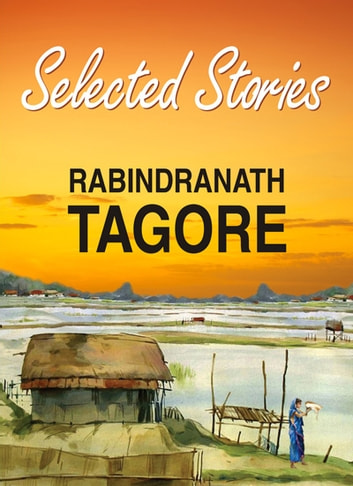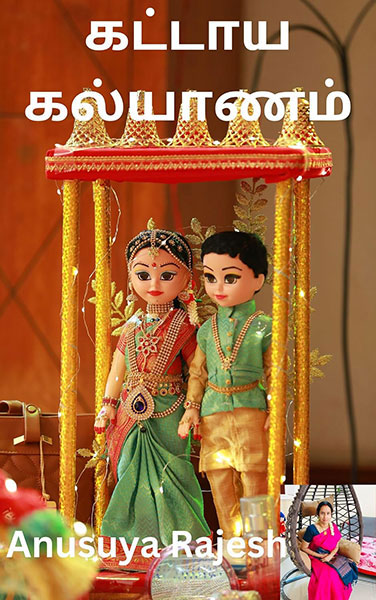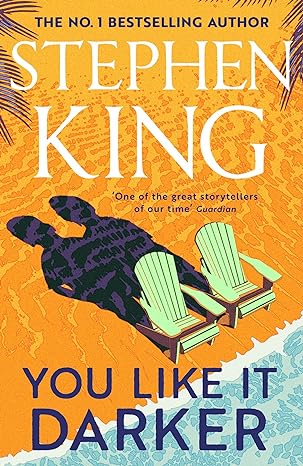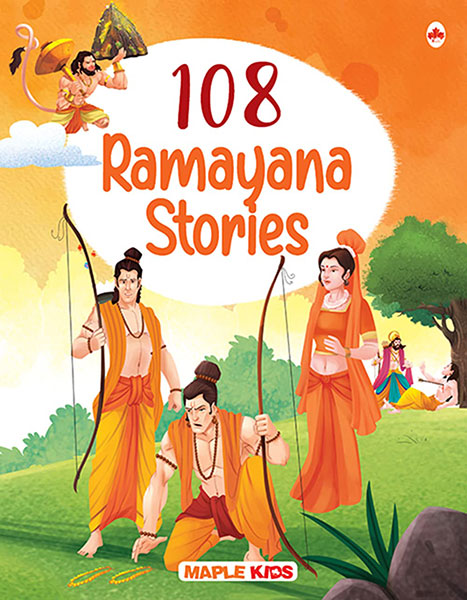
Selected Stories of Rabindranath Tagore
This collection contains some of the best stories of Tagore who put India on the literary map of the world. Translated from Bengali to English, these stories depict the human condition in its many forms: innocence and childhood, love and loss, the city and the village, the natural and the supernatural. Prominent among the stories are the famous The Cabuliwallah, which has also been adapted as a movie. The book also gives an insight into the socio-economic conditions prevalent in Colonial Bengal.
BEST DEALS
About the Author
Rabindranath Tagore (1861-1941) was the youngest son of Debendranath Tagore, a leader of the Brahmo Samaj. He was educated at home and although at seventeen he was sent to England for formal schooling, he did not finish his studies there. In his mature years, in addition to his many-sided literary activities, he managed the family estates, a project which brought him into close touch with common humanity and increased his interest in social reforms. He also started an experimental school at Shantiniketan where he tried his Upanishadic ideals of education. From time to time he participated in the Indian nationalist movement, though in his own non-sentimental and visionary way; and Gandhi, the political father of modern India, was his devoted friend.
Tagore was knighted by the ruling British Government in 1915, but within a few years he resigned the honour as a protest against British policies in India. Tagore had early success as a writer in his native Bengal. With his translations of some of his poems he became rapidly known in the West. In fact, his fame attained a luminous height, taking him across continents on lecture tours and tours of friendship. For the world he became the voice of India's spiritual heritage; and for India, especially for Bengal, he became a great living institution.
Although, Tagore wrote successfully in all literary genres, he was first of all a poet. Among his fifty and odd volumes of poetry are Manasi (1890) {The Ideal One}, Sonar Tari (1894) {The Golden Boat}, Gitanjali (1910) {Song Offerings}, Gitimalya (1914) {Wreath of Songs}, and Balaka (1916) {The Flight of Cranes}. The English renderings of his poetry, which include The Gardener (1913), Fruit-Gathering (1916), and The Fugitive (1921), do not generally correspond to particular volumes in the original Bengali; and in spite of its title, Gitanjali: Song Offerings (1912), the most acclaimed of them, contains poems from other works besides its namesake. Tagore’s major plays are Raja (1910) {The King of the Dark Chamber}, Dakghar (1912) {The Post Office}, Achalayatan (1912) {The Immovable}, Muktadhara (1922) {The Waterfall}, and Raktakaravi (1926) {Red Oleanders}.
He is the author of several volumes of short stories and a number of novels, among them Gora (1910), Ghare-Baire (1916) {The Home and the World}, and Yogayog (1929) {Crosscurrents}. Besides these, he wrote musical dramas, dance dramas, essays of all types, travel diaries, and two autobiographies, one in his middle years and the other shortly before his death in 1941. Tagore also left numerous drawings and paintings, and songs for which he wrote the music himself.
Read Sample
1. The Cabuliwallah
My five-year old daughter Mini cannot live without chattering. I really believe that in all her life she has not wasted a minute in silence. Her mother is often vexed at this, and would like to stop her prattle, but I would not. For Mini to be quiet is unnatural, and I cannot bear it long. And so my own talk with her is always lively.
One morning, for instance, when I was in the midst of the seventeenth chapter of my new novel, my little Mini stole into the room, and putting her hand into mine, said: ‘Father! Ramdayal, the door-keeper, calls a crow a krow! He doesn’t know anything, does he?’
Before I could explain to her the difference between one language and another in this world, she had embarked on the full tide of another subject. ‘What do you think, Father? Bhola says there is an elephant in the clouds, blowing water out of his trunk, and that is why it rains!’
And then, darting off anew, while I sat still, trying to think of some reply to this: ‘Father! What relation is Mother to you?’
With a grave face I contrived to say: ‘Go and play with Bhola, Mini! I am busy!’
The window of my room overlooks the road. The child had seated herself at my feet near my table, and was playing softly, drumming on her knees. I was hard at work on my seventeenth chapter, in which Pratap Singh, the hero, has just caught Kanchanlata, the heroine, in his arms, and is about to escape with her by the third-storey window of the castle, when suddenly Mini left her play, and ran to the window, crying: ‘A Cabuliwallah! A Cabuliwallah!’ And indeed, in the street below, there was a Cabuliwallah, walking slowly along. He wore the loose, soiled clothing of his people, and a tall turban; he carried a bag on his back, and boxes of grapes in his hand.
I cannot tell what my daughter’s feelings were when she saw this man, but she began to call him loudly. ‘Ah!’ thought I; ‘he will come in, and my seventeenth chapter will never be finished!’ At that very moment the Cabuliwallah turned, and looked up at the child. When she saw this, she was overcome by terror, and running to her mother’s protection, disappeared. She had a blind belief that inside the bag, which the big man carried, there were perhaps two or three other children like herself. The pedlar meanwhile entered my doorway and greeted me with a smile.
So precarious was the position of my hero and my heroine, that my first impulse was to stop and buy something, since Mini had called the man to the house. I made some small purchases, and we began to talk about Abdur Rahman, the Russians, the English, and the Frontier Policy.
As he was about to leave, he asked: ‘And where is the little girl, sir?’
And then, thinking that Mini must get rid of her false fear, I had her brought out.
She stood by my chair, and looked at the Cabuliwallah and his bag. He offered her nuts and raisins, but she would not be tempted, and only clung closer to me, with all her doubts increased.
This was their first meeting.
A few mornings later, however, as I was leaving the house, I was startled to find Mini, seated on a bench near the door, laughing and talking, with the great Cabuliwallah at her feet. In all her life, it appeared, my small daughter had never found so patient a listener, save her father. And already the corner of her little sari was stuffed with almonds and raisins, the gift of her visitor. ‘Why did you give her those?’ I said, and taking out an eight-anna piece, I handed it to him. The man accepted the money without demur, and put it into his pocket.
Alas, on my return, an hour later, I found the unfortunate coin had made twice its own worth of trouble! For the Cabuliwallah had given it to Mini; and her mother, catching sight of the bright round object, had pounced on the child with: ‘Where did you get that eight-anna piece?’
‘The Cabuliwallah gave it me,’ said Mini cheerfully.
‘The Cabuliwallah gave it you!’ cried her mother greatly shocked. ‘O Mini! How could you take it from him?’
I entered at that moment, and saving her from impending disaster, proceeded to make my own inquiries.
It was not the first or the second time, I found, that the two had met. The Cabuliwallah had overcome the child’s first terror by a judicious bribe of nuts and almonds, and the two were now great friends.
They had many quaint jokes, which amused them greatly. Mini would seat herself before him, look down on his gigantic frame in all her tiny dignity, and with her face rippling with laughter would begin:
‘O Cabuliwallah! Cabuliwallah! What have you got in your bag?’
And he would reply, in the nasal accents of the mountaineer: ‘An elephant!’ Not much cause for merriment, perhaps; but how they both enjoyed the fun! And for me, this child’s talk with a grown-up man had always in it something strangely fascinating.
Then the Cabuliwallah, not to be behindhand would take his turn: ‘Well, little one, and when are you going to your father-in-law’s house?’
Now nearly every small Bengali maiden had heard long ago about her father-in-law’s house; but we were a little new-fangled, and had kept these things from our child, so that Mini at this question must have been a trifle bewildered. But she would not show it, and with ready tact replied: ‘Are you going there?’
Amongst men of the Cabuliwallah’s class, however, it is well known that the words father-in-law’s house have a double meaning. It is a euphemism for jail, the place where we are well cared for, at no expense to ourselves. In this sense would the sturdy pedlar take my daughter’s question. ‘Oh,’ he would say, shaking his fist at an invisible policeman, ‘I will thrash my father-in-law!’ Hearing this, and picturing the poor discomfited relative, Mini would go off into peals of laughter in which her formidable friend would join.
These were autumn mornings, the very time of year when kings of old went forth to conquest; and I, without stirring from my little corner in Calcutta, would let my mind wander over the whole world. At the very name of another country, my heart would go out to it, and at the sight of a foreigner in the streets, I would fall to weaving a network of dreams—the mountains, the glens, and the forests of his distant land, with his cottage in their midst, and the free and independent life, or far away wilds. Perhaps scenes of travel are conjured up before me and pass and re-pass in my imagination all the more vividly, because I lead an existence so like a vegetable that a call to travel would fall upon me like a thunder-bolt. In the presence of this Cabuliwallah, I was immediately transported to the foot of arid mountain peaks, with narrow little defiles twisting in and out amongst their towering heights. I could see the string of camels bearing the merchandise, and the company of turbaned merchants, some carrying their queer old firearms, and some their spears, journeying downward towards the plains. I could see—. But at some such point Mini’s mother would intervene, and implore me to ‘beware of that man’.
Mini’s mother is unfortunately very timid. Whenever she hears a noise in the streets, or sees people coming towards the house, she always jumps to the conclusion that they are either thieves, or drunkards, or snakes, or tigers, or malaria, or cockroaches, or caterpillars. Even after all these years of experience, she is not able to overcome her terror. So she was full of doubts about the Cabuliwallah, and used to beg me to keep a watchful eye on him.
If I tried to laugh her fear gently away, she would turn round seriously, and ask me solemn questions:
Were children never kidnapped?
Was it not true that there was slavery in Cabul?
Was it so very absurd that this big man should be able to carry off a tiny child?
I urged that, though not impossible, it was very improbable. But this was not enough, and her dread persisted. But as it was a very vague dread, it did not seem right to forbid the man to the house, and the intimacy went on unchecked.
Once a year, in the middle of January, Rahman, the Cabuliwallah, used to return to his own country, and as the time approached, he would be very busy, going from house to house collecting his debts. This year, however, he could always find time to come and see Mini. It might have seemed to a stranger that there was some conspiracy between the two, for when he could not come in the morning, he would appear in the evening.
Even to me it was a little startling now and then, suddenly to surprise this tall, loose-garmented man laden with his bags, in the corner of a dark room; but when Mini ran in smiling, with her, ‘O Cabuliwallah! Cabuliwallah!’ and the two friends, so far apart in age, subsided into their old laughter and their old jokes, I felt reassured.
One morning, a few days before he had made up his mind to go, I was correcting proof-sheets in my study. The weather was chilly. Through the window the rays of the sun touched my feet, and the slight warmth was very welcome. It was nearly eight o’clock, and early pedestrians were returning home with their heads covered. Suddenly I heard an uproar in the street, and, looking out saw Rahman being led away bound between two policemen, and behind them a crowd of inquisitive boys. There were bloodstains on his clothes, and one of the policemen carried a knife. I hurried out, and stopping them, inquired what it all meant. Partly from one, partly from another, I gathered that a certain neighbour had owed the pedlar something for a Rampuri shawl, but had denied buying it, and that in the course of the quarrel Rahman had struck him. Now, in his excitement, the prisoner began calling his enemy all sorts of names, when suddenly in a verandah of my house appeared my little Mini, with her usual exclamation: ‘O Cabuliwallah! Cabuliwallah!’ Rahman’s face lighted up as he turned to her. He had no bag under his arm today, so that she could not talk about the elephant with him. She therefore at once proceeded to the next question: ‘Are you going to your father-in-law’s house?’ Rahman laughed and said: ‘That is just where I am going, little one!’ Then seeing that the reply did not amuse the child, he held up his fettered hands. ‘Ah!’ he said, ‘I would have thrashed that old father-in-law, but my hands are bound!’
On a charge of murderous assault, Rahman was sentenced to several years’ imprisonment.
Time passed, and he was forgotten. Our accustomed work in the accustomed place went on, and the thought of the once free mountaineer spending his years in prison seldom or never occurred to us. Even my light-hearted Mini, I am ashamed to say, forgot her old friend. New companions filled her life. As she grew older, she spent more of her time with girls. So much, indeed, did she spend with them that she came no more, as she used to do, to her father’s room, so that I rarely had any opportunity of speaking to her.
Years had passed away. It was once more autumn, and we had made arrangements for our Mini’s marriage. It was to take place during the Puja holidays. With Durga returning to Kailas, the light of our home also would depart to her husband’s house, and leave her father’s in shadow.
The morning was bright. After the rains, it seemed as though the air had been washed clean and the rays of the sun looked like pure gold. So bright were they, that they made even the sordid brick-walls of our Calcutta lanes radiant. Since early dawn the wedding-pipes had been sounding, and at each burst of sound my own heart throbbed. The wail of the tune, Bhairavi, seemed to intensify the pain I felt at the approaching separation. My Mini was to be married that night.
From early morning noise and bustle had pervaded the house. In the courtyard there was the canopy to be slung on its bamboo poles; there were chandeliers with their tinkling sound to be hung in each room and verandah. There was endless hurry and excitement. I was sitting in my study, looking through the accounts, when someone entered, saluting respectfully, and stood before me. It was Rahman, the Cabuliwallah. At first I did not recognise him. He carried no bag, his long hair was cut short and his old vigour seemed to have gone. But he smiled, and I knew him again.
‘When did you come, Rahman?’ I asked him.
‘Last evening,’ he said, ‘I was released from jail.’
The words struck harshly upon my ears. I had never before talked with one who had wounded his fellow-man, and my heart shrank within itself when I realised this; for I felt that the day would have been better-omened had he not appeared.
‘There are ceremonies going on,’ I said, ‘and I am busy. Perhaps you could come another day?’
He immediately turned to go; but as he reached the door he hesitated, and said, ‘May I not see the little one, sir, for a moment?’ It was his belief that Mini was still the same. He had pictured her running to him as she used to do, calling ‘O Cabuliwallah! Cabuliwallah!’ He had imagined too that they would laugh and talk together, just as of old. Indeed, in memory of former days, he had brought, carefully wrapped up in a paper, a few almonds and raisins and grapes, obtained somehow or other from a countryman; for what little money had, had gone.
I repeated: ‘There is a ceremony in the house, and you will not be able to see anyone today.’
The man’s face fell. He looked wistfully at me for a moment, then said, ‘Good morning,’ and went out.
I felt a little sorry, and would have called him back, but I found he was returning of his own accord. He came close up to me and held out his offerings with the words: ‘I have brought these few things, sir, for the little one. Will you give them to her?’
I took them, and was going to pay him, but he caught my hand and said: ‘You are very kind, sir! Keep me in your memory. Do not offer me money! You have a little girl: I too have one like her in my own home. I think of her, and bring this fruit to your child—not to make a profit for myself.’
Saying this, he put his hand inside his big loose robe, and brought out a small and dirty piece of paper. Unfolding it with great care, he smoothed it out with both hands on my table. It bore the impression of a little hand. Not a photograph. Not a drawing. Merely the impression of an ink-smeared hand laid flat on the paper. This touch of the hand of his own little daughter he had carried always next to his heart, as he had come year after year to Calcutta to sell his wares in the streets.
Tears came to my eyes. I forgot that he was a poor Cabuli fruit-seller, while I was—. But no, what was I more than he? He also was a father.
That impression of the hand of his little Parvati in her distant mountain home reminded me of my own little Mini.
I sent for Mini immediately from the inner apartment. Many difficulties were raised, but I swept them aside. Clad in the red silk of her wedding-day, with the sandal paste on her forehead, and adorned as a young bride, Mini came and stood modestly before me.
The Cabuliwallah seemed amazed at the apparition. He could not revive their old friendship. At last he smiled and said: ‘Little one, are you going to your father-in-law’s house?’
But Mini now understood the meaning of the word ‘father-in-law’, and she could not answer him as of old. She blushed at the question, and stood before him with her bride-like face bowed down.
I remembered the day when the Cabuliwallah and my Mini had first met, and I felt sad. When she had gone, Rahman, sighed deeply and sat down on the floor. The idea had suddenly come to him that his daughter too must have grown up, while he had been away so long, and that he would have to make friends anew with her also. Assuredly he would not find her as she was when he left her. And besides, what might not have happened to her in these eight years?
The marriage-pipes sounded, and the mild autumn sunlight streamed round us. But Rahman sat in the little Calcutta lane, and saw before him the barren mountains of Afghanistan.
I took out a currency-note, gave it to him, and said: ‘Go back to your daughter, Rahman, in your own country, and may the happiness of your meeting bring good fortune to my child!’
Having made this present, I had to curtail some of the festivities. I could not have the electric lights I had intended, nor the military band, and the ladies of the house were despondent about it. But to me the wedding-feast was all the more brighter for the thought that in a distant land a long-lost father had met again his only child.
2. The Postmaster
The postmaster took up his duties first in the village of Ulapur. Though the village was small, there was an indigo factory near it, and the proprietor, an Englishman, had managed to get a post office established.
Our postmaster belonged to Calcutta. He felt like a fish out of water in this remote village. His office and living-room were in a dark thatched shed, not far from a green, slimy pond, surrounded on all sides by a dense growth.
The man employed in the indigo factory had no leisure; moreover, they were hardly desirable companions for decent folk. Nor is a Calcutta boy an adept in the art of associating with others. Among strangers he appears either proud or ill at ease. At any rate, the postmaster had but little company; nor had he much work to do.
At times he tried his hand at writing verse. That the movement of the leaves and the clouds of the sky were enough to fill life with joy—such were the sentiments to which he sought to give expression. But God knows that the poor fellow would have felt it as the gift of a new life, if some genie of the Arabian Nights had in one night swept away the trees, leaves and all, and substituted for them a macadamised road, and had hidden the clouds from view with rows of tall houses.
The postmaster’s salary was small. He had to cook his own meals, which he used to share with Ratan, an orphan girl of the village, who did odd jobs for him.
When in the evening, the smoke began to curl upwards from the village cow-sheds, and the cicadas chirped in every bush; when the mendicants of the Baul sect sang their shrill songs in their daily meeting place; when any poet, who had attempted to watch the movement of the leaves in the dense bamboo thickets, would have felt a ghostly shiver run down his back, the postmaster would light his little lamp, and call out ‘Ratan.’
Ratan would sit outside, waiting for his call, and instead of coming in at once, would reply, ‘Did you call me sir?’
‘What are you doing?’ the postmaster would ask.
‘I must go and light the kitchen fire,’ she would reply.
And the postmaster would say: ‘Oh let the kitchen fire wait for a while; light me my pipe first.’
At last Ratan would enter, with puffed-out cheeks, vigorously blowing into a flame a live coal to light the tobacco. This would give the postmaster an opportunity of chatting with her. ‘Well, Ratan,’ perhaps he would begin, ‘do you remember anything of your mother?’ That was a fertile subject. Ratan partly remembered, and partly forgot. Her father had been fonder of her than her mother: him she recollected more vividly. He used to come home in the evening after his works, and one or two evenings stood out more clearly than others, like pictures in her memory. Ratan would sit on the floor near the postmaster’s feet as memories crowded in upon her. She called to mind a little brother that she had—and how on some bygone cloudy day she had played at fishing with him on the edge of the pond, with a twig for a fishing-rod. Such little incidents would drive out greater events from her mind. Thus, as they talked, it would often get very late, and the postmaster would feel too lazy to do any cooking at all. Ratan would then hastily light the fire, and toast some unleavened bread, which, with the cold remnants of the morning meal, was enough for their supper.
On some evenings, seated at his desk in the corner of the big empty shed, the postmaster too would call up memories of his own home, of his mother and his sister, of those for whom in his exile his heart was sad—memories which were always haunting him, but which he could not reveal to the men of the factory, though he found himself naturally recalling them aloud in the presence of the simple little girl. And so it came about that the girl would allude to his people as mother, brother, and sister, as if she had known them all her life. Indeed, she had a complete picture of each one of them painted in her heart.
One day at noon, during a break in the rains, there was a cool soft breeze blowing; the smell of the damp grass and leaves in the hot sun felt like the warm breathing on one’s body of the tired earth. A persistent bird repeated all the afternoon the burden of its one complaint in Nature’s audience chamber.
The postmaster had nothing to do. The shimmer of freshly washed leaves, and the banked-up remnants of the retreating rain-clouds were sights to see; and the postmaster was watching them and thinking to himself: ‘Oh, if only some kindred soul were near—just one loving human being whom I could hold near my heart!’ This was exactly, he went on to think, what that bird was trying to say, and it was the same feeling which the murmuring leaves were striving to express. But no one knows, or would believe, that such an idea might also take possession of an ill-paid village postmaster in the deep, silent midday interval in his work.
The postmaster sighed, and called out ‘Ratan.’ Ratan was then stretched at full length beneath the guava-tree, busily engaged in eating unripe guavas. At the voice of her master, she ran up breathlessly, saying: ‘Did you call me, Dada?’ ‘I was thinking of teaching you to read,’ said the postmaster. And then for the rest of the afternoon he taught her the alphabet.
Thus, in a very short time, Ratan had got as far as the double consonants.
It seemed as though the rains would never end. Canals, ditches, and hollows were all flooded with water. Day and night the patter of rain was heard and the croaking of frogs. The village roads became impassable, and marketing had to be done in punts.
One heavily clouded morning, the postmaster’s little pupil had been waiting for long outside the door to be called, but as the usual summons did not come, she took up her dogeared book, and slowly entered the room. She found her master lying on his bed, and thinking he was resting, she was about to retire on tiptoe, when she suddenly heard her name—‘Ratan!’ She turned at once and asked: ‘Were you asleep, Dada?’ The postmaster in a weak voice replied: ‘I am not well. Feel my head; is it very hot?’
In the loneliness of his exile, and in the gloom of the rains, he needed a little tender nursing. He longed to call to mind the touch on his forehead of soft hands with tinkling bracelets, to imagine the presence of loving womanhood, the nearness of mother and sister. And the exile was not disappointed. Ratan ceased to be a little girl. She at once stepped into the post of mother, called in the village doctor, gave the patient his pills at the proper intervals, sat up all night by his pillow, cooked his gruel for him, and every now and then asked: ‘Are you feeling a little better, Dada?’
It was some time before the postmaster, though still weak, was able to leave his sick-bed. ‘No more of this,’ said he with decision, ‘I must apply for a transfer from this place.’ He wrote off at once to Calcutta an application for a transfer, on the ground of the unhealthiness of the spot.
Relieved from her duties as nurse, Ratan again took up her former place outside the door. But she no longer heard the same old call. She would sometimes furtively peep inside to find the postmaster sitting on his chair, or stretched on his bed, and gazing absently into the air. While Ratan was awaiting her call, the postmaster was awaiting a reply to his application. The girl read her old lessons over and over again—her great fear was lest, when the call came, she might be found wanting in the double consonants. After a week’s waiting, one evening her summons came. With an overflowing heart Ratan rushed into the room and cried, as she used to cry: ‘Did you call me, Dada?’
The postmaster said: ‘I am going away tomorrow, Ratan.’
‘Where are you going, Dada?’
‘I am going home.’
‘When will you come back?’
‘I am not coming back.’
Ratan asked no more. The postmaster, of his own accord, went on to tell her that his application for a transfer had been rejected, so he had resigned his post and was going home.
For a long time neither of them spoke. The lamp burned dimly, and from a leak in one corner of the thatch, water dripped steadily into an earthen vessel on the floor beneath.
After a while Ratan rose, and went off to the kitchen to prepare the meal; but she was not so quick about it as before. Many new things to think of had entered her little brain. When the postmaster had finished his supper, the girl suddenly asked him ‘Dada, will you take me home with you?’
The postmaster laughed. ‘What an idea!’ said he. But he did not think it necessary to explain to the girl wherein lay the absurdity of such a course.
The whole night, awake and asleep, the postmaster’s laughing reply haunted her—‘What an idea!’
When he woke up in the morning, the postmaster found his bath ready. He had continued his Calcutta habit of bathing in water drawn and kept in pitchers, instead of taking a plunge in the river as was the custom of the village. For some reason or other, the girl could not ask him the time of his departure, she had therefore fetched the water from the river long before sunrise, so that it should be ready as soon as he might want it. After the bath came a call for Ratan. She entered without a sound, and looked silently into her master’s face for orders. The master said: ‘You need not be anxious about my going away, Ratan: I shall tell my successor to look after you.’ These words were kindly meant, no doubt but inscrutable are the ways of a woman’s heart!
Ratan had borne many a scolding from her master without complaint, but these kind words she could not bear. She burst out weeping, and said: ‘No, no, you need not tell anybody anything at all about me; I don’t want to stay here any longer.’
The postmaster was dumbfounded. He had never seen Ratan like this before.
The new man duly arrived, and the postmaster gave over charge, and prepared to depart. Just before starting he called Ratan and said: ‘Here is something for you: I hope it will keep you for some little time.’ He brought out from his pocket the whole of his month’s salary, retaining only a trifle for the journey. Then Ratan fell at this feet and cried: ‘O, Dada pray don’t give me anything, don’t in any way trouble about me,’ and then she ran away out of sight.
The postmaster heaved a sigh, took up his bag, put his umbrella over his shoulder, and, accompanied by a man carrying his many-coloured tin trunk, slowly made for the boat.
When he got in and the boat was under way, and the rain-swollen river, like a stream of tears welling up from the earth, swirled and sobbed at her bows, then he felt grieved at heart; the sorrow-stricken face of a village girl seemed to represent for him the great unspoken pervading grief of Mother Earth herself. At one moment he felt an impulse to go back and bring away with him that lonely waif, forsaken of the world. But the wind had just filled the sails, the boat had got well into the middle of the turbulent current, and already the village was left behind, and its outlying burning-ground had come into sight.
So the traveller, borne on the breast of the swift-flowing river, consoled himself with philosophical reflections on the numberless meetings and partings in the world, and on death, the great parting, from which there is no return.
But Ratan had no philosophy. She was wandering about the post office with the tears streaming from her eyes. It may be that she had still a hope lurking in some corner of her heart that her Dada would return, and perhaps that is why she could not tear herself away. Alas, for our foolish human nature! Its fond mistakes are persistent. The dictates of reason take a long time to assert their sway.
The surest proofs meanwhile are disbelieved. One clings desperately to some vain hope, till a day comes when it has sucked the heart dry and then it breaks through its bonds and departs. After that comes the misery of awakening, and then once again the longing to get back into the maze of the same mistakes.
The Child’s Return
1
Raicharan was twelve years old when he came as a servant to his master’s house. He belonged to the same caste as his master and was given his master’s little son to nurse. As time went on, the boy left Raicharan’s arms to go to school. From school he went to college, and after college he entered the judicial service. Until the time of the boy’s marriage, Raicharan was his sole attendant.
But when a mistress came into the house, Raicharan found that he had two masters instead of one. All his former influence passed to the new mistress. This was compensated for by a fresh arrival. Anukul had a son born to him and Raicharan by his unsparing attentions soon obtained complete hold over the child. He would toss him up in his arms, call to him in absurd baby language, put his face close to the baby’s and withdraw it again with a laugh.
Presently the child was able to crawl and venture outside the house. When Raicharan went to catch him, he would scream with mischievous laughter and try to evade him. Raicharan was amazed at the profound skill and exact judgement the baby showed when pursued. He would say to his mistress with a look of awe and mystery: ‘You son will be a judge some day.’
New wonders came in their turn. It was to Raicharan an epoch in human history when the baby began to toddle. When he called his father Ba-ba and his mother Ma-ma and Raicharan Chan-na, then Raicharan’s joy was boundless. He wanted to let the whole world know.
After a while Raicharan was asked to show his ingenuity in other ways. He had, for instance, to play the part of a horse, holding the reins between his teeth, and prancing with his feet. He had also to wrestle with his little charge; and if he could not, by a wrestler’s trick, fall on his back defeated at the end, a great outcry was certain.
About this time Anukul was transferred to a district on the banks of the Padma. On his way through Calcutta, he bought his son a little go-cart, and at the same time a yellow satin waist-coat, a gold-laced cap, and gold bracelets and anklets. Raicharan loved to take this finery out and put it on his little charge whenever they went for a walk, and this he did with great pride and ceremony.
Then came the rainy season, and day after day the rain poured down. The hungry river, like an enormous serpent, swallowed terraces, villages, and cornfields, covering with its flood the tall grasses and wild casuarinas on the sandbanks. From time to time there was a deep thud as the river-banks crumbled. The unceasing roar of the main current could be heard from far away. Masses of foam, carried swiftly past, proved to the eye the swiftness of the stream.
One afternoon the rain stopped. It was cloudy, but cool and bright. Raicharan’s little despot did not want to stay indoors on such a fine afternoon. His lordship climbed into the go-cart. Raicharan, between the shafts, dragged him slowly along till he reached the rice-fields on the banks of the river. There was no one in the fields, and no boat on the steam. Across the water, on the farther side, the clouds were rifted in the west. The silent ceremonial of the setting sun was revealed in all its glowing splendour. In the midst of that stillness, the child suddenly pointed in front of him and cried—‘Chan-na! Pitty fow.’
On a mud-flat closeby stood a large Kadamba tree in full flower. My lord the baby looked at it with greedy eyes, and Raicharan knew immediately what he wanted. Only a short time before he had made, out of the flower-balls of this tree, a small go-cart and the child had been so happy dragging it about by a string, that for the whole day Raicharan was not asked to put on the reins at all. He was promoted from being a horse to being a groom.
But Raicharan had no wish that evening to go splashing knee-deep through the mud to reach the flowers. So he quickly pointed in the opposite direction, and cried: ‘Look, baby look! Look at the bird!’ And with all sorts of curious noises he pushed the go-cart rapidly away from the tree.
But a child, destined to be a judge, cannot be put off so easily. And besides, there was at the time nothing to attract his eyes. And you cannot keep up for ever the pretence of an imaginary bird.
The little Master’s mind was made up, and Raicharan was at his wit’s end. ‘Very well, baby,’ he said at last, ‘you sit still in the cart, and I’ll go and get you the pretty flower. Only mind you, don’t go near the water.’
As he said this, he bared his legs to the knee, and waded through the oozing mud towards the tree.
The moment Raicharan had gone, his little Master’s thoughts raced off to the forbidden water. The baby saw the river rushing by, splashing and gurgling as it went. It seemed as though the disobedient wavelets themselves were running away from some greater Raicharan with the laughter of a thousand children. At the sight of their mischievous sport, the heart of the human child grew excited and restless. He got down stealthily from the go-cart and toddled off towards the river. On his way he picked up a small stick and leant over the bank of the stream, pretending to fish. The mischievous fairies of the river with their mysterious voices seemed to be inviting him to enter their play-house.
Raicharan had plucked a handful of flowers from the tree and was carrying them back in a fold of his cloth, his face wreathed in smiles. But when he reached the go-cart, it was empty. He looked round on all sides, but there was no one there. He looked back at the cart, and there was no one there.
In that first terrible moment, his blood froze within him. Before his eyes the whole universe swam round like a dark mist. From the depths of his broken heart he gave one piercing cry: ‘Master, Master, little Master!’
But no voice answered, ‘Chan-na.’ No child laughed mischievously back: no scream of baby delight welcomed his return. Only the river ran on with its splashing, gurgling noise as before, as though it knew nothing at all, and had no time to attend to such a tiny human event as the death of a child.
As the evening crept on, Raicharan’s mistress became more and more anxious. She sent men out everywhere to search. They went with lanterns in their hands and reached at last the banks of the Padma. There they found Raicharan rushing up and down the fields, like a stormy wind, shouting in a voice of despair: ‘Master, Master, little Master!’
When they got Raicharan home at last, he fell prostrate at the feet of his mistress. They shook him, and questioned him, and asked him repeatedly where he had left the child: but all he could say was that he knew nothing.
Though everyone held the opinion that the Padma had swallowed the child, there was still a lurking doubt left. For a band of gipsies had been noticed outside the village that afternoon, and some suspicion rested on them. The mother went so far in her wild grief as to think it possible that Raicharan himself had stolen the child. She called him aside with piteous entreaty and said: ‘Raicharan, give me back my baby. Give me back my child. Take from me any money you want, but give me back my child!’
Raicharan only beat his forehead in reply. His mistress in her anger ordered him out of the house.
Anukul tried to reason his wife out of this wholly unjust suspicion: ‘Why on earth’, he said, ‘should he commit such a crime as that?’
The mother only replied: ‘The baby was wearing gold ornaments. Who knows?’
It was impossible to reason with her after that.
2
Raicharan went back to the village of his birth. He had no son, and there was no hope that a child would now be born to him. But it came about before the end of a year that his wife gave birth to a son and died.
An overwhelming resentment at first grew up in Raicharan’s heart at the sight of this new baby. At the back of his mind was an indignant suspicion that it had come as an usurper in place of the little Master. He also thought that it would be a grave offence to be happy with a son of his own after what had happened to his master’s little child. Indeed, if it had not been for a widowed sister, who mothered the new baby, it would not have lived long.
But gradually a change came over Raicharan’s mind. A wonderful thing happened. This new baby in turn began to crawl about, and venture outside the house, bent on mischief. It also showed an amusing cleverness in making its escape to safety. Its voice, its laughter and tears, its gestures, were those of the little Master. Sometimes, when Raicharan listened to its crying, his heart suddenly began thumping wildly against his ribs, and it seemed to him that his former little Master was crying somewhere in the unknown land of death because he had lost his Chan-na.
Phailna (for that was the name Raicharan’s sister gave to the new baby) soon began to talk. It learnt to say Ba-ba and Ma-ma with a baby accent. When Raicharan heard those familiar sounds, the mystery suddenly became clear. The little Master could not cast off the spell of his Chan-na and therefore he had been reborn in his house.
The three arguments in favour of this were, to Raicharan, altogether beyond dispute:
The new baby was born soon after his little Master’s death.
His wife could never have accumulated such merit as to give birth to a son in middle age.
The new baby walked with toddling steps and called out Ba-ba and Ma-ma. There was no sign lacking—this was certainly the future judge.
Then suddenly Raicharan remembered that terrible accusation of the mother. ‘Ah,’ he said to himself in amazement, ‘the mother’s heart was right. She knew I had stolen her child.’
When once he had come to this conclusion, he was filled with remorse for his past neglect. He now gave himself over, body and soul, to the new baby and became its devoted attendant. He began to bring it up as if it were the son of a rich man. He bought a go-cart, a yellow satin waist-coat, and a gold-embroidered cap. He melted down the ornaments of his dead wife and made gold bangles and anklets. He refused to let the little one play with any child in the neighbourhood and became himself its sole companion day and night. As the baby grew to boyhood, he was so petted and spoilt and clad in such finery that the village children would call him ‘Your Lordship’, and jeer at him; and older people regarded Raicharan as unaccountably crazy about the child.
At last the time came for the boy to go to school. Raicharan sold his small piece of land and went to Calcutta. There with great difficulty he found employment as a servant and sent Phailna to school. He spared no pains to give him the best education, the best clothes, the best food. Meanwhile, he himself lived on a mere handful of rice and would say in secret: ‘Ah, my little Master, my dear little Master, you loved me so much that you came back to my house. You will never suffer from any neglect of mine.’
In this way twelve years passed away. The boy could now read and write well. He was bright, good-looking, and in perfect health. He paid a great deal of attention to his personal appearance and took great care in the parting of his hair. He was inclined to extravagance, and spent money freely in finery and enjoyment. He could never quite regard Raicharan as a father because, though he had the affection of a father, his manner was that of a servant. A further fault was this, that Raicharan kept secret from everyone the fact that he himself was the father of the child.
The students of the hostel in which Phailna was a boarder, were greatly amused by Raicharan’s country-manners, and I am afraid that behind his father’s back, Phailna joined in their fun. But, in the bottom of their hearts, all the students loved the innocent and tender-hearted old man, and Phailna also was very fond of him. But, as I have said before, he loved him with a kind condescension.
As Raicharan grew older and older, his employer was continually finding fault with him for his incompetence. He starved himself for the boy’s sake, so that he grew weaker in body and was no longer up to his daily task. He began to forget things and became dull and stupid. But his employer expected the work of a fully capable servant, and would listen to no excuse. The money that Raicharan had brought with him from the sale of his land was now exhausted and the boy continually grumbled about the state of his clothes and continually asked for more money.












